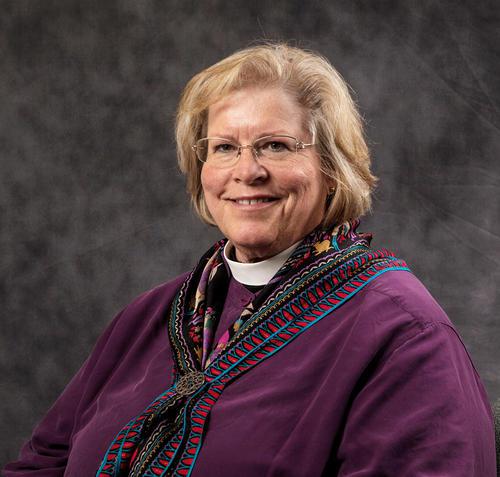|
Episcopal Church in 'denial' over addiction, leader says
By Doug Donovan
A high-ranking official in the Episcopal Church is calling on the denomination to "repent for our role" in the death of bicyclist Thomas Palermo by examining "systemic denial" about alcohol and drug abuse, and reforming the process by which bishops are elected. The Rev. Gay Clark Jennings, a leader in the national church's governing body, said the election last year of Heather Elizabeth Cook as the second-ranking bishop in the Episcopal Diocese of Maryland in spite of her 2010 conviction for drunken driving is the latest example of why many believe the process is flawed. Cook, 58, was indicted in Baltimore this month on 13 charges in the death of Palermo, a 41-year-old married father of two young children. She is accused of hitting Palermo with her car Dec. 27 as she was texting and driving drunk along Roland Avenue. The charges include automobile manslaughter, driving under the influence of alcohol and leaving the scene of an accident. She is free on bail while awaiting trial. Cook was charged in Caroline County in 2010 for driving under the influence and given probation before judgment, which would allow her to clear her criminal record by completing her probation. Leaders in the Maryland diocese asked Cook last month to resign her position in the church, and on Tuesday, the national Episcopal Church formally restricted her from acting as a member of the clergy. "You shall not exercise or engage in the ordained ministry of this Church in any respect, shall not participate in any functions of the House of Bishops, and shall not hold yourself out as an ordained person of this Church in good standing, until such time as all matters relating to you that are pending before a panel of the Disciplinary Board of Bishops shall have been finally resolved," Presiding Bishop Katharine Jefferts Schori said in the order. Jennings is president of the House of Deputies, one of the two chambers that make up the church's governing body. The 900-member group must concur with the House of Bishops to adopt new rules governing the church. "In the weeks since Mr. Palermo was killed, many people in the church have struggled to understand better how our systemic denial about alcohol and other drug abuse in the church may have contributed to Bishop Cook's election and confirmation as a bishop even as she seemed to be struggling with addiction," Jennings wrote in a statement released this week. "Many Episcopalians are asking what people in positions of authority in the church knew about her history of addiction and driving while under the influence of alcohol." Jennings said she is appointing a special legislative committee to review the governing body's 1985 policy on alcohol and drug abuse. That policy directs the church to offer job protection and re-employment, with salaried sick leave during hospitalization, to alcoholics and drug abusers who accept treatment. Jennings said Wednesday that the Episcopal Church should respond to Palermo's death by creating institutional systems to better address alcoholism. "We need to look at the spectrum of prevention, intervention, treatment and recovery," she said. "We need to look at how we as a church can partner with community programs addressing addiction and public health." Church officials have said that Cook disclosed her 2010 conviction to the search committee for bishop, but the delegates who voted in the election were not told about it. Bishop Eugene Taylor Sutton has defended the decision to move Cook forward as a candidate after church officials learned of the 2010 charges. He said the church must practice forgiveness and offer second chances. The review of the election is part of a larger disciplinary investigation the church is conducting under Title IV of its ecclesiastical code. Title IV calls for a board of seven or more members — more than half of them priests or deacons — to conduct a comprehensive review of a case and recommend a penalty to a provincial board of review. "I hope there will be an open reporting of its results that will answer many of these questions," Jennings said in her statement. "I ask each of you to remember that all of us bear responsibility for ensuring that we elect our leaders honestly and transparently. "Even until the very last moment, we all bear responsibility for coming forward when we believe that the process has failed us." Jennings also called on church members to donate to an educational trust fund for Palermo's children. A spokesman for Maryland diocese said the local church agreed with Jennings' critique and was "very grateful" for her comments. "These are exactly the kinds of things Bishop Sutton has been saying," spokesman Dan Webster said. Sutton told congregants at meetings across the state that the solution is not banning alcohol outright, which he compared to Puritanism, but rather "having a look at this in a way that is going to respect both members and guests," Webster said. "We need to re-examine our history with alcohol and figure out if there is anything we need to do," he said. Contact: ddonovan@baltsun.com
|
.
Any original material on these pages is copyright © BishopAccountability.org 2004. Reproduce freely with attribution.
